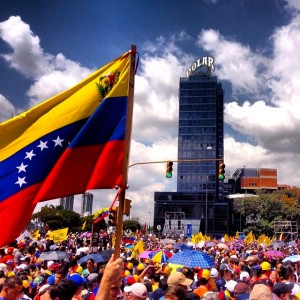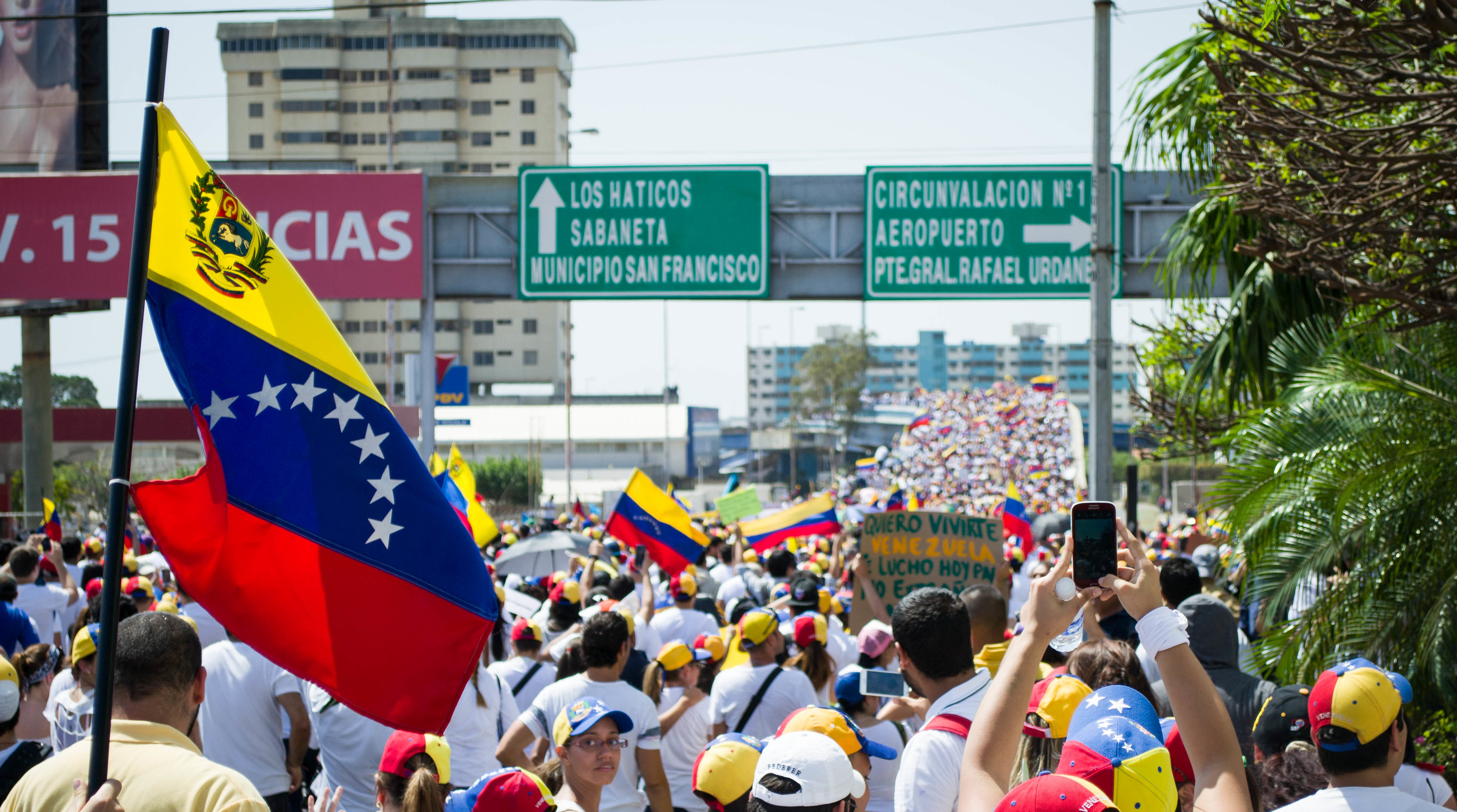Last Wednesday February 12, Venezuela celebrated the National Youth Day. For the whole day, official radio and TV channels transmitted the parade organized by the government. When Venezuelan President Nicolas Maduro Moros addressed the general public later that day, he congratulated the Venezuelan youth and called for them to continue building Bolivarian socialism. At the end of that day, it seemed that it had been just another holiday festivity in Venezuela. However, the streets of Caracas, Merida and Maracaibo told a very different story.

On that same day, university students had scheduled peaceful demonstrations against Maduro’s policies. Since Maduro became president after Hugo Chavez’s death in 2013, the economic downturn in Venezuela has worsened. With an inflation rate of 56.2% (the highest in the world), the rapid weakening of the Bolivar compared to the American Dollar (from 4.28 in 2012, to 6.30 in 2014) and the importing limitations resulting from the restrictions of dollars in Venezuela, Maduro’s government has been in a difficult position since he took office. The lack of basic supplies resulted in a toilet paper crisis last year and has now caused five newspaper companies to close due to lack of printing paper. Thus, it is hardly a surprise that the insecurity, the lack of basic goods and the economic crisis in Venezuela became intolerable for the students, who decided to take the streets on the National Youth Day to demonstrate their discontent.
Unfortunately, the events did not go out as intended. The peaceful protests quickly turned violent, and soon civil reports of confrontations between students and the National Guard started to flood Youtube, Twitter and Instagram. For several hours, these social networks updated information about the conflicts which included reports of shootings, arrests, deaths and explicit violence against the demonstrators. Several reports of the National Guard spraying tear gas against the students were uploaded on the Internet, while other photos showed unidentified men in motor bicycles shooting at civilians. International media reported three deaths as of February 17.
Yet, perhaps the most terrifying factor for Venezuelan citizens was that none of the fights were reported on national media that day. Even though social networks showed appalling videos of violence, not only did the Venezuelan government refuse to give any reports until the day after, it also censored private media. Twitter images were blocked for at least two days, and all TV channels that had been reporting the conflicts were taken off air. In particular, the Colombian News show, “NTN24,” which had been following the conflict and remained in touch with Venezuelan opposition member Leopoldo Lopez, was suddenly banned from both public and private TV. Harvard-alumni Lopez has taken a protagonist role in the right wing party over these past events, publicly condemning both the clashes and the censorship, and calling for Maduro’s resignation. Meanwhile, former opposition candidate Henrique Capriles has mainly remained silent, most likely due to his loss of popularity after his defeat at the presidential elections last year.
On the other hand, official reports, which were released a couple of days after the event, state that “99 people were arrested in these demonstrations, out of which 86 have been already liberated.” Moreover, Maduro declared that the protests were organized by the opposition to overthrow him from office, similar to Chavez’s situation in 2002. He has also recently denounced US Secretary of State John Kerry of conspiring against his government, and, he expelled three American diplomats from Venezuela on February 17.
Maduro’s lack of charisma compared to that of Chavez’s has cost him a great amount of support from the Venezuelan people, and even from his political party, the PSUV. Yet, if he manages to control the recent uprisings, it is likely that he will gain the legitimacy he desperately needs to maintain office. At the same time, it is uncertain what the deeply-fragmented opposition’s plan is since, although it demands Maduro’s resignation, it still has not proposed any candidate to replace him. If the opposition plans to take more concrete actions, they should take advantage of these recent events, and attempt to finally establish a right wing alliance.
As to Venezuela’s human rights situation, the mutual accusations between the government and the activists regarding who used the motorcycled infiltrates to start the violence are disturbing. The lack of civil protection from the government and the fellow activists should not be overlooked, and international organizations should oversee the future marches that will take place in order to protect human rights. Media censorship is also extremely worrying, since the protection of freedom of expression is vital in order to ensure the accountability of the government. Thus, it will be up to the international community to monitor the flow of Internet in the country and to fight for the reestablishment of banned TV programs.
Leopoldo Lopez has called for another march in different cities of Venezuela to take place on February 18. He also declared that he is ready to face arrest after Maduro issued a detention order for him on Monday.
